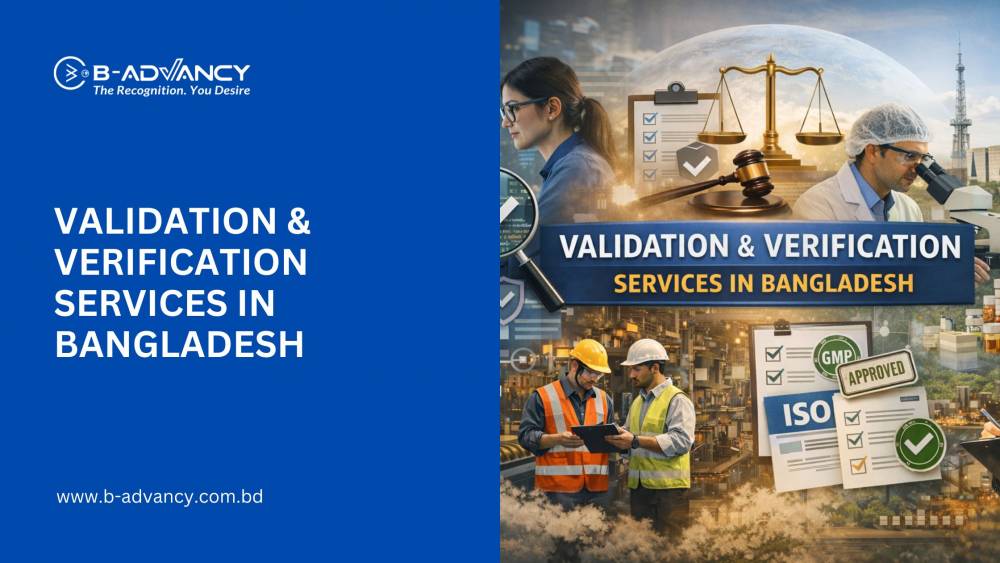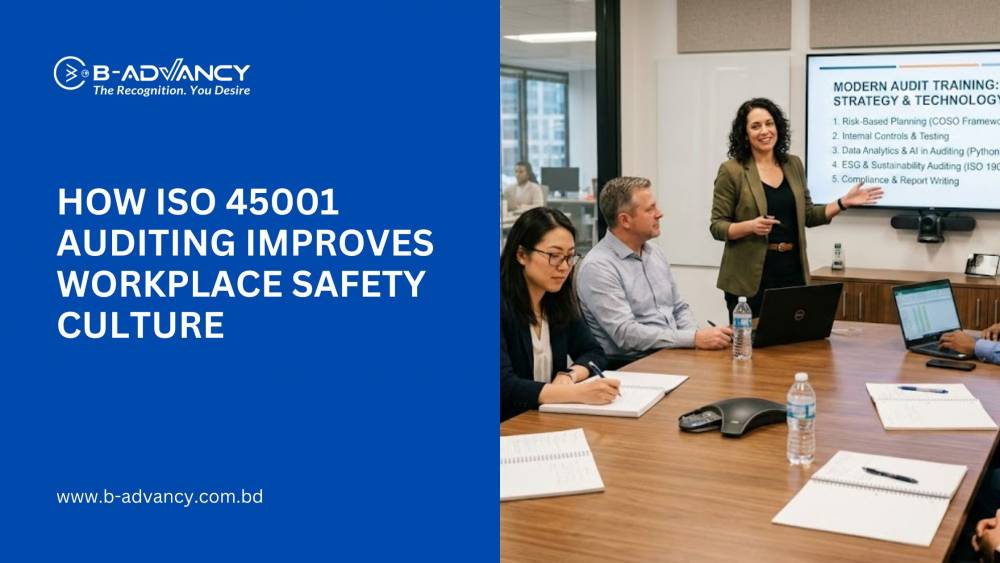The fashion and apparel industry in Bangladesh is one of the country's most critical economic sectors, driving significant export earnings and employment. However, as global markets become increasingly competitive, the need for quality assurance, environmental sustainability, and ethical practices has never been more important. ISO certification offers a pathway for businesses in the fashion and apparel industry to meet international standards, enhance efficiency, and improve their brand reputation. This blog explores the importance of ISO certification in the fashion and apparel industry in Bangladesh, the benefits it provides, and how you can begin your certification journey with B-ADVANCY Certification Limited.
What is ISO Certification and Why is it Important for the Fashion and Apparel Industry?
ISO (International Organization for Standardization) is an independent, non-governmental body that develops and publishes international standards to ensure the quality, safety, and efficiency of products and services. For the fashion and apparel industry, ISO certification is crucial in helping companies adhere to globally recognized standards, ensuring their products meet customer expectations and comply with international regulations.
In Bangladesh, the apparel industry has long been a global leader in garment exports, contributing to more than 80% of the country’s export revenue. However, the industry faces several challenges, including concerns over working conditions, sustainability, and quality control. By implementing ISO standards, companies can address these challenges by enhancing product quality, improving workplace safety, and adopting sustainable manufacturing practices.
Key ISO Standards for the Fashion and Apparel Industry
Several ISO standards are particularly relevant to the fashion and apparel sector, helping companies manage quality, environmental impact, and labor conditions:
ISO 9001: Quality Management Systems
ISO 9001 ensures that companies have a robust quality management system (QMS) in place. For apparel manufacturers, this standard helps streamline production processes, reduce defects, and ensure consistent product quality.
ISO 14001: Environmental Management Systems
This standard focuses on reducing the environmental impact of manufacturing processes. For fashion brands and apparel manufacturers, adopting ISO 14001 means implementing sustainable practices such as waste reduction, energy efficiency, and minimizing harmful emissions.
ISO 45001: Occupational Health and Safety
ISO 45001 sets out guidelines for creating safe and healthy working environments. In an industry often scrutinized for labor conditions, ISO 45001 helps companies ensure the safety and well-being of their workers.
ISO 50001: Energy Management Systems
Energy efficiency is vital in reducing operating costs and the environmental footprint of apparel manufacturing. ISO 50001 helps companies manage energy use efficiently, contributing to both cost savings and sustainability.
Benefits of ISO Certification for the Fashion and Apparel Industry in Bangladesh
Improved Product Quality and Customer Satisfaction
ISO certification, particularly ISO 9001, ensures that apparel manufacturers maintain high-quality standards. This results in fewer defects, consistent product quality, and greater customer satisfaction.
Enhanced Reputation and Market Access
Achieving ISO certification demonstrates a company’s commitment to quality, safety, and sustainability. For Bangladeshi apparel companies, this certification can enhance their reputation and open doors to new markets, particularly in Europe and North America, where stringent standards are often required.
Sustainable and Ethical Practices
ISO 14001 and ISO 45001 certifications ensure that companies follow environmentally sustainable and socially responsible practices. This is especially important as global consumers increasingly demand eco-friendly and ethically produced apparel.
Risk Management and Compliance
ISO standards help companies identify potential risks and ensure compliance with national and international regulations. This minimizes the likelihood of legal issues, reputational damage, and operational disruptions.
Bangladesh Rules and Regulations Regarding ISO Certification
In Bangladesh, the government recognizes the importance of adhering to international standards such as ISO, especially in export-driven industries like fashion and apparel. The Bangladesh Standards and Testing Institution (BSTI) is responsible for promoting and ensuring compliance with these standards. Additionally, the Bangladesh Garment Manufacturers and Exporters Association (BGMEA) and the Bangladesh Knitwear Manufacturers and Exporters Association (BKMEA) play key roles in promoting ethical, sustainable, and high-quality manufacturing practices in the apparel sector.
For more information, visit the official websites of:
-
Bangladesh Garment Manufacturers and Exporters Association (BGMEA)
-
Bangladesh Knitwear Manufacturers and Exporters Association (BKMEA)
Steps to Achieve ISO Certification for Your Fashion and Apparel Business
Initial Assessment and Gap Analysis
Start by assessing your current processes against the relevant ISO standards, such as ISO 9001 for quality management or ISO 14001 for environmental management. Identify areas for improvement and create a plan to address them.
Develop and Implement the Management System
Develop and implement a management system that aligns with the ISO standard you are aiming for. This may involve revising production processes, improving supply chain management, or investing in new technologies.
Internal Audit and Management Review
Conduct internal audits to ensure that your management system meets the requirements of the relevant ISO standards. Regularly review the system with top management to ensure continuous improvement.
Select a Certification Body
Choose a reputable certification body like B-ADVANCY Certification Limited to conduct an external audit. They will evaluate your compliance with ISO standards and guide you through the certification process. For more information on how to start your ISO certification journey, contact. Email: bangladesh@b-advancy.com | Call: +8801612264559
Achieve Certification and Maintain Compliance
Once you pass the external audit, you will receive ISO certification. To maintain certification, it’s important to continue improving your management system and undergo regular audits.
Challenges in Implementing ISO Standards
Cost and Resource Allocation
Implementing ISO standards can require significant investment, both in terms of finances and resources. However, the long-term benefits, such as improved efficiency and reduced waste, often justify the upfront costs.
Employee Training and Buy-In
Shifting to ISO standards may face resistance from employees accustomed to traditional practices. Comprehensive training programs and clear communication are essential to overcome this challenge.
Complexity of Supply Chain Management
Managing a complex global supply chain while adhering to ISO standards can be challenging. It’s important to establish clear communication channels and ensure that suppliers also meet the required standards.
Conclusion
ISO certification is a strategic asset for the fashion and apparel industry in Bangladesh. It enables businesses to improve product quality, adopt sustainable practices, and enhance their market reputation. With a growing focus on ethical and environmentally friendly production, ISO certification can help companies meet global demands and remain competitive. While the path to certification may require effort and investment, the long-term benefits make it a worthwhile endeavor for any apparel company aiming for success in the international market.


27.jpg)



































































































































































































